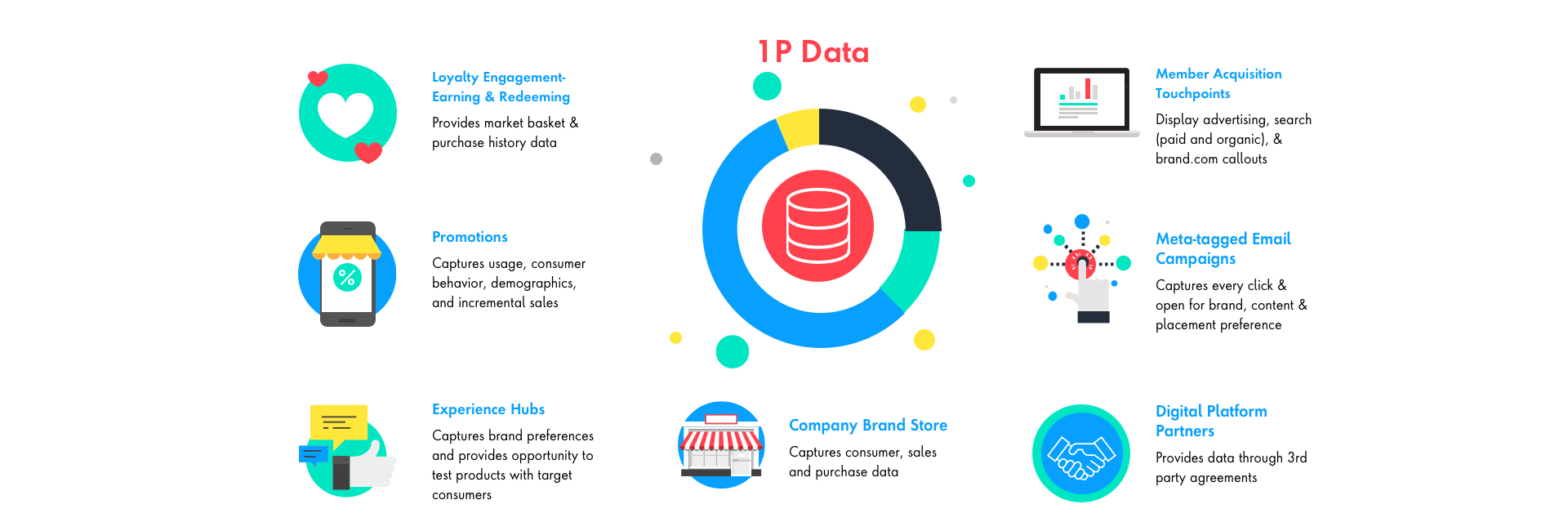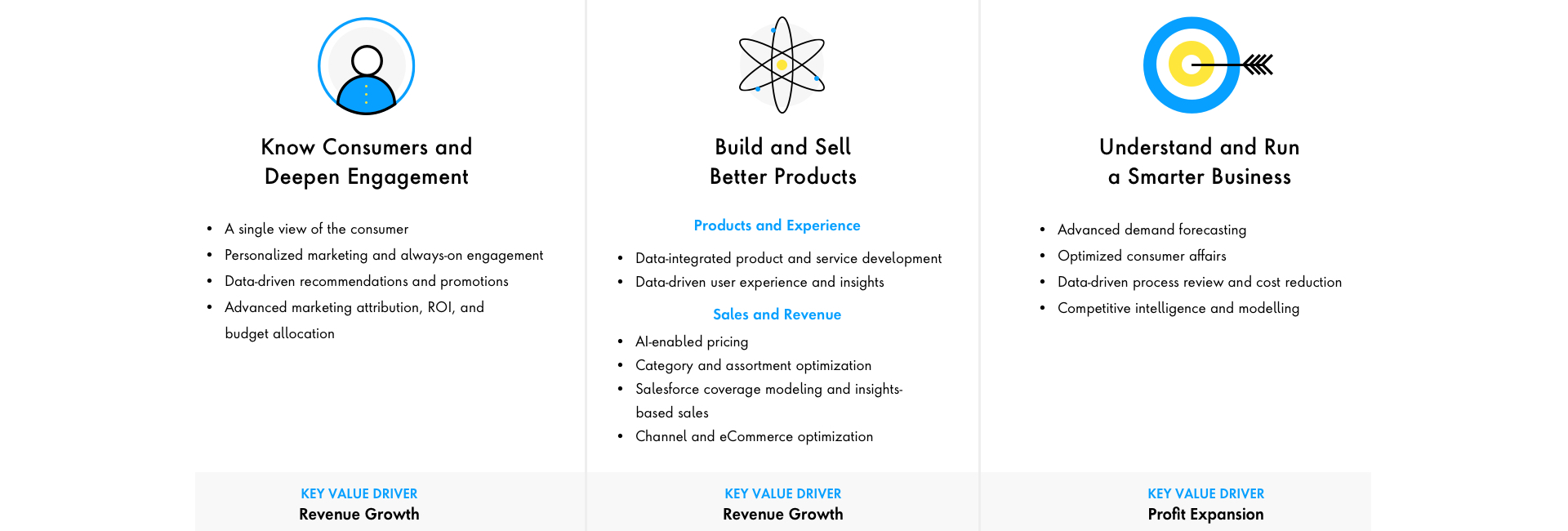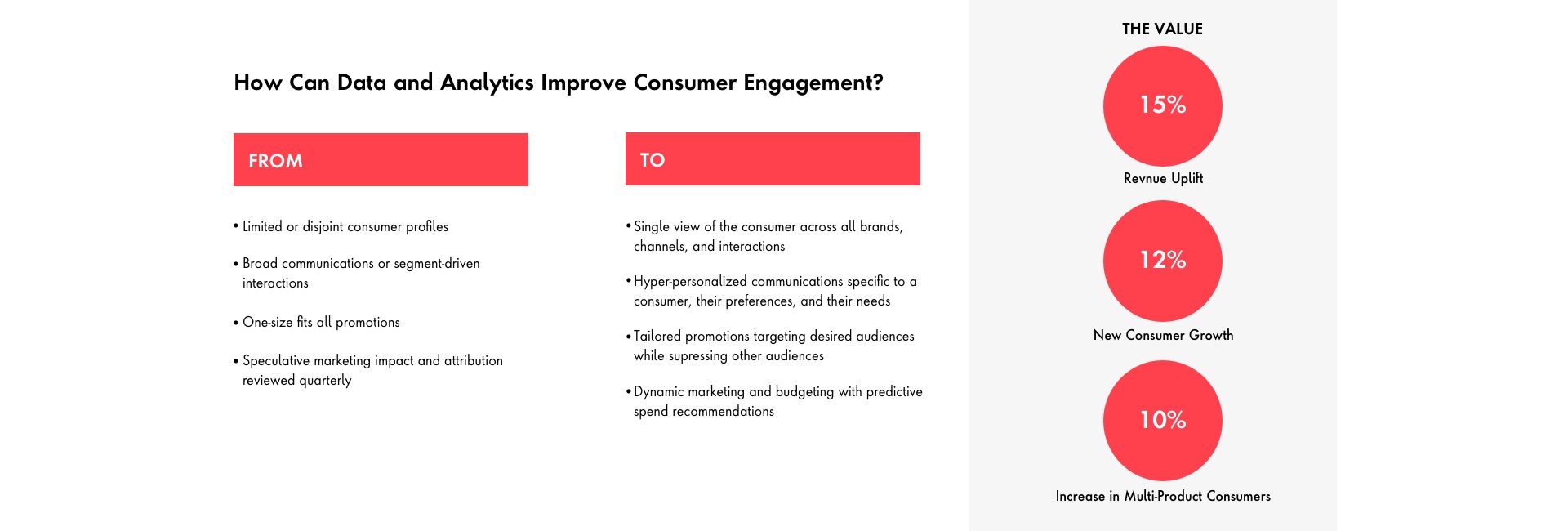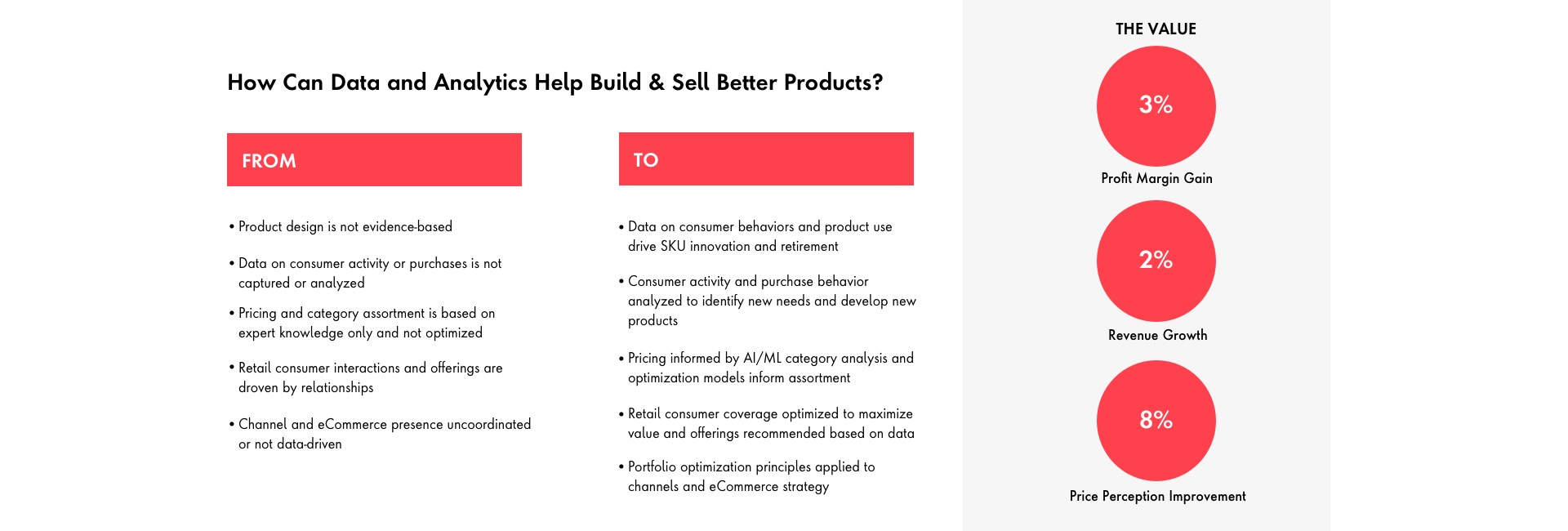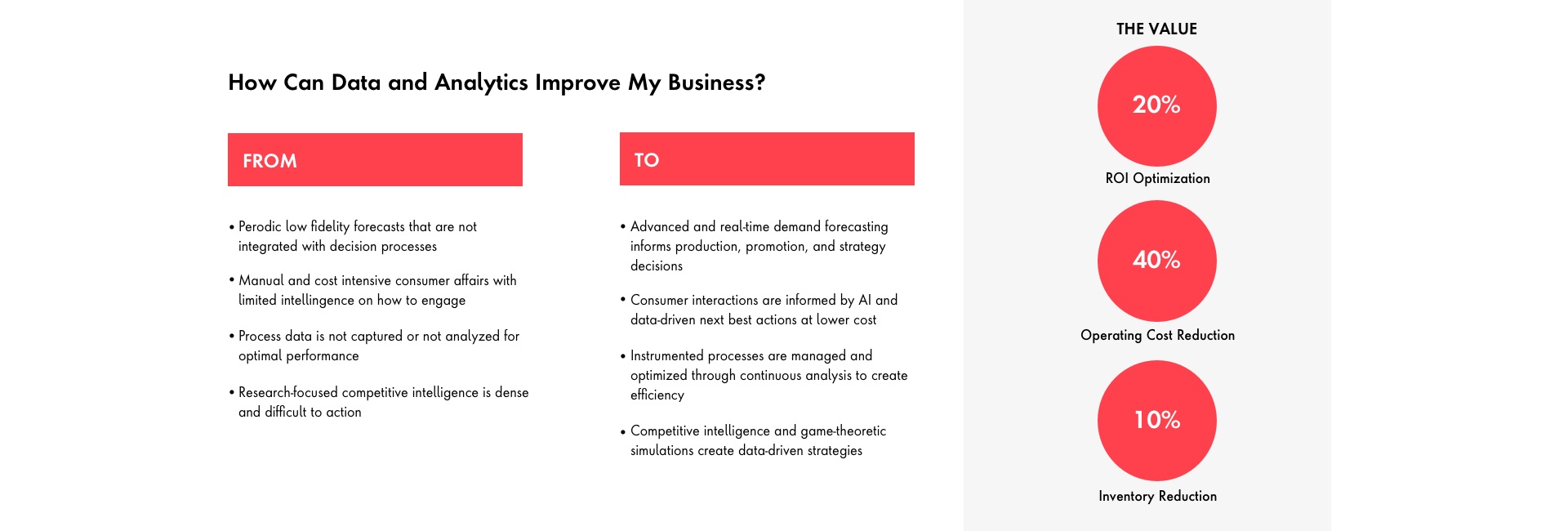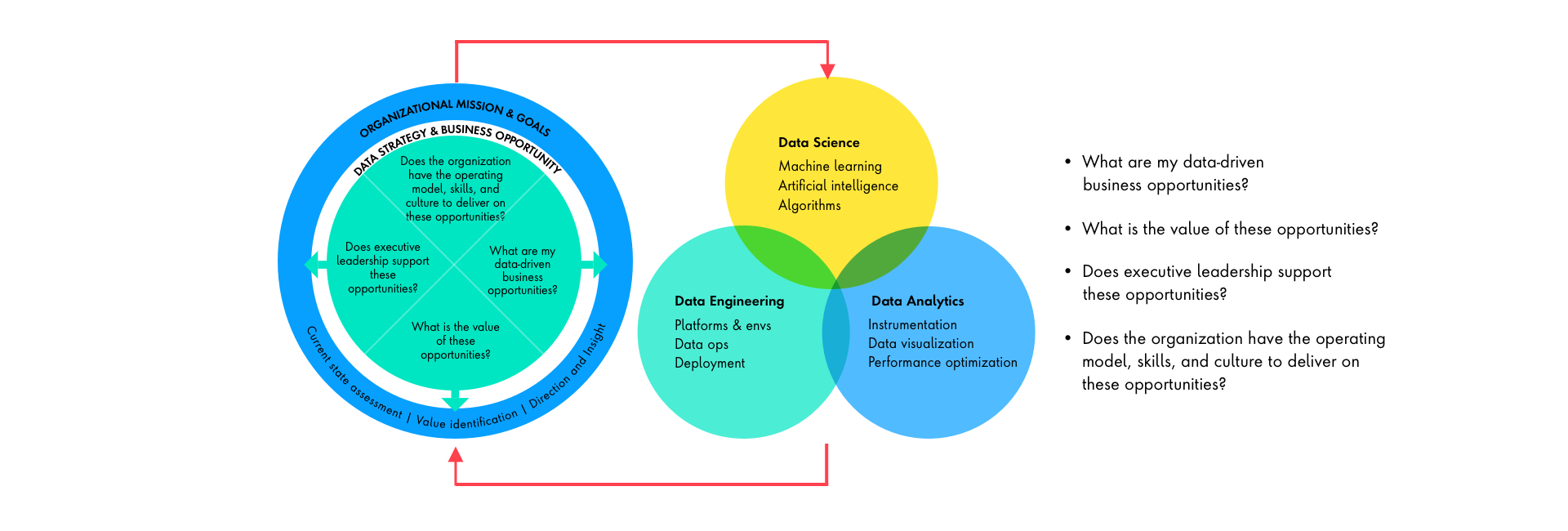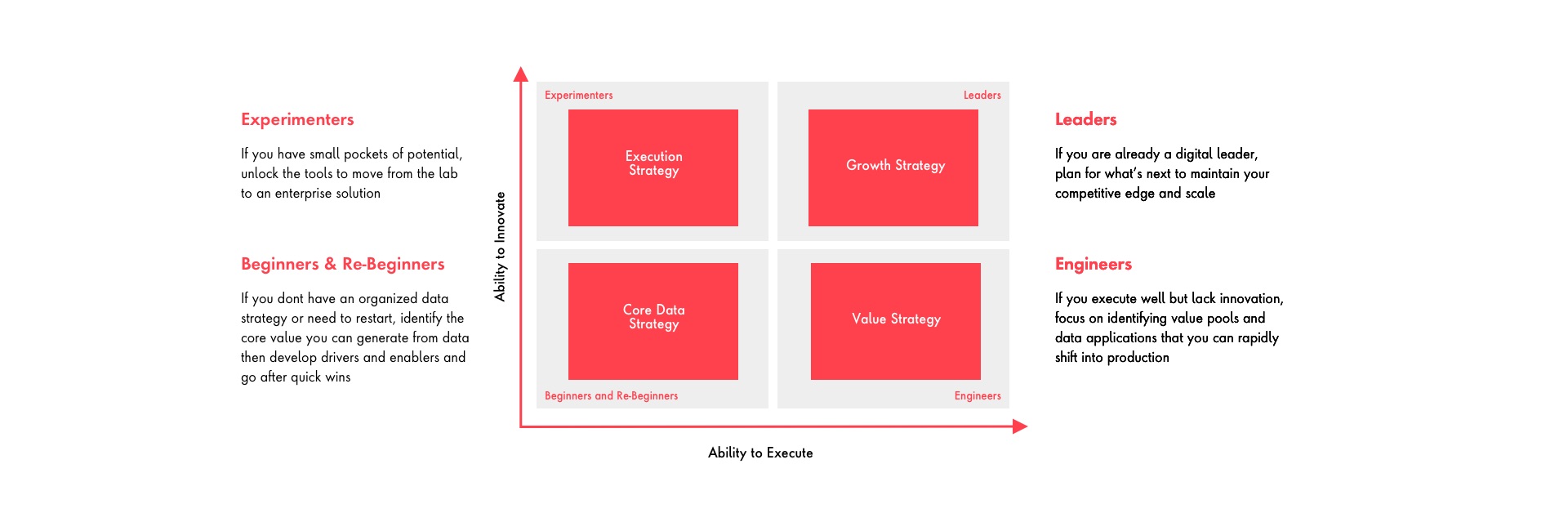Today’s shopper journey is becoming increasingly more digital – and though consumer product (CP) firms have made big investments in data and analytics, many have struggled to reap the rewards.
According to Statista, 42 percent of CP firms believe they are not using their existing technology to its fullest potential. Further, CP firms report that less than one percent of data collected is actually analyzed – leaving troves of potentially valuable insights on the table.
For CP firms, data transformation is about making better decisions that directly support critical business problems. This means establishing a process to capture, organize and analyze data across multiple sources to inform decision-making across the entire organization.











